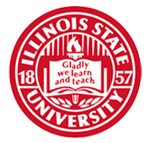Abstract
Speech-language pathology students require comprehensive graduate education to address the needs of their future autistic clients. Despite this need, survey research suggests that students receive limited didactic and clinical graduate training that sufficiently prepares them to work with autistic clients. Contemporary research into clinical education for autism includes several features, such as more support and group-based services, that do not align with traditional clinical education in the field (Anderson, 1988; Dudding et al., 2017). The purpose of this study is to describe feasibility (by acceptability and implementation) of a new clinical education protocol, the Multi-client Multilevel Mentorship (M3) model. The M3 model is a collaborative clinical education model that emphasizes in-the-room clinical supervision of group-based service delivery for a team of students. Two cohorts of student clinicians (N = 9) participated in two ten-week rotations where they provided (a) and a literacy intervention (b) an intervention targeting executive function for two groups of clients with mixed diagnoses including autism spectrum disorder. Two clinical educators supervised the sessions with additional support by peer mentors. Survey feedback from participants showed that they rated the clinical education experience highly, suggesting adequate acceptability of the M3 model. Participants demonstrated strong fidelity to one protocol and fair fidelity to the other, which was a positive indicator of implementation. Overall, student participants appear to benefit from the M3 model during an adapted group intervention protocol designed for autistic clients. Further testing of the M3 model’s effectiveness is warranted given the positive feasibility indicators.
Recommended Citation
Wolford, G. W.,
&
Fissel Brannick, S.
(2024).
Reimagining Clinical Education Practices for Autism through the Multi-client Multilevel Mentorship Model.
Teaching and Learning in Communication Sciences & Disorders, 8(3).
DOI: https://doi.org/10.61403/2689-6443.1320




